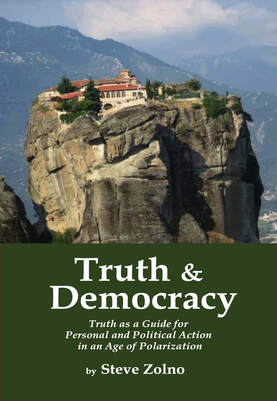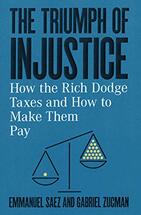Because we have been brought up in a culture that teaches the importance of “getting ahead,” more and more people are getting further behind, with the rest in a continual state of fear about whether they have enough to sustain themselves and their families. But perhaps we should be wary of a state of mind that tells us that there never is enough, no matter how much we accumulate. As recent events make clear, with riots across our nation, there are many who consider themselves economically and socially disadvantaged. For our economy to remain viable, we must commit ourselves to creating a more just society with opportunities that equally benefit everyone. The Triumph of Injustice is by Saez and Zucman, at UC Berkeley, who have collaborated with Thomas Piketty, author of Capital in the 21st Century which we discussed in the past, but the theme essentially is the same:
These views are very much along the lines of the warnings of Robert Reich, who also works on the Berkeley campus, in his film Inequality for All (2013), but is based on updated research that shows inequality moving in an accelerated direction. The solution that the authors suggest is moving back to the tax rate once considered normal before the massive cuts that began in the 1980s:
From Sharon in our group:
We also briefly discussed mutual aid societies, which can take any form and have been in existence as long as people. They support individuals in meeting their common needs. We might consider families or their extensions mutual aid societies at the most basic level, or frontier organizations where neighbors help each other build homes, or membership organizations like credit unions. Lacking a vibrant monetary system, an alternative economy may work based on everyone contributing their efforts toward the common good. The last article in our packet was “Crumbs for the Hungry but Windfalls for the Rich.” According to this article the bulk of the benefits of the current assistance programs are going to those who least need it, similarly to the government programs put in place during the 2008 Great Recession. Our next meeting will be on July 6 at 7:45 p.m. Pacific Time (online). The topic will be How to Change the World, admittedly a broad emphasis, but our focus will be on how to move toward meaningful change in democracies to better serve the needs of all who live in them. We will consider some models used by governments and organizations to improve the lives of the people they serve. Of course the question we must consider is “would these techniques work here?” To join us contact Steve at thefutureofdemocracy.net. Please recommend this newsletter to people who you think might appreciate it. If you want to be added to the list to receive each new newsletter when posted, fill out our contact form and check the box just above the SUBMIT button. You may also use that form to be removed from our list.
Visit our Books page for information about purchasing The Future of Democracy, The Death of Democracy, and Truth & Democracy. Click ↓ (#) Comments below to view comments/questions or add yours. Click Reply below to respond to an existing comment.
0 Comments
|
 5th edition now available 5th edition now available
Steve ZolnoSteve Zolno is the author of the book The Future of Democracy and several related titles. He graduated from Shimer College with a Bachelor’s Degree in Social Sciences and holds a Master’s in Educational Psychology from Sonoma State University. He is a Management and Educational Consultant in the San Francisco Bay Area and has been conducting seminars on democracy since 2006. Archives
July 2024
Categories |


 RSS Feed
RSS Feed